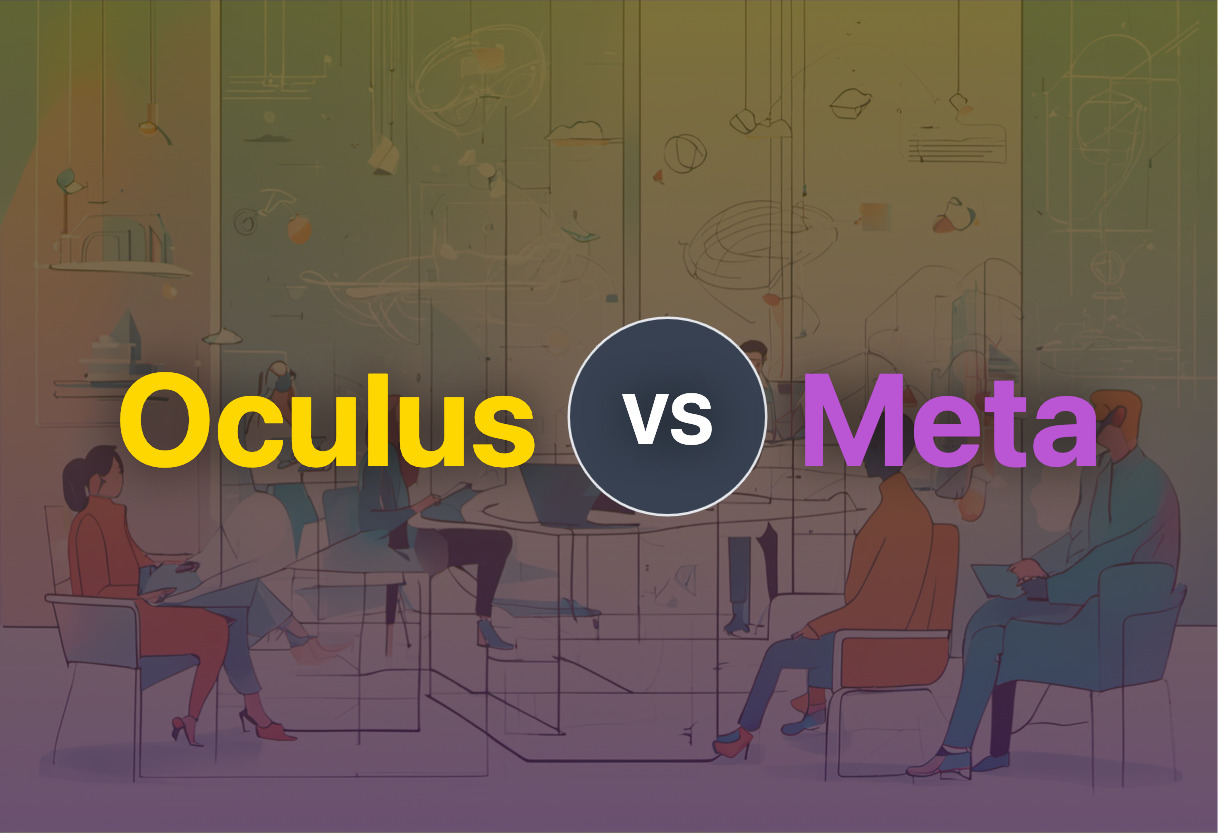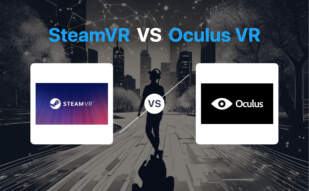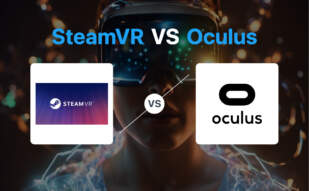Between Oculus Rift and Meta Platforms, Inc., your choice hinges on intent. For tech-centric developers seeking to innovate in the VR space, Oculus Rift’s pioneering headset tech is second to none. Conversely, if integrating into a burgeoning metaverse and leveraging social media dominance is your goal, Meta is your go-to.

Key Differences Between Oculus Rift and Meta Platforms, Inc.
- Product Focus: Oculus primly concerns VR development, the Rift line particularly. Meta is a conglomerate with VR as one of numerous offerings.
- Perspective: Oculus Rift has a developer-oriented approach with high-end tech; Meta caters to wider audience, seeking to blend VR with social connectivity.
- Market Maturity: Oculus is mature and seasoned in the VR realm, with tested and trusted hardware. Meta, rebranded from Facebook, is just beginning its major push into the VR/metaverse landscape.
- Organizational Size: Oculus operates as a division within Meta, itself being a colossal entity with 71,469 employees as of June 2023.
| Comparison | Oculus Rift | Meta Platforms |
|---|---|---|
| Founding Year | 2011 | 2004 |
| Founder | Palmer Luckey | Mark Zuckerberg, Eduardo Saverin, Andrew McCollum, Dustin Moskovitz, Chris Hughes |
| First Public Release | Oculus Rift DK1, March 2013 | Initial Public Offering, 2012 |
| Technology | Virtual Reality Headset | Social Media, Consumer Electronics, VR |
| Significant Corporate Events | Discontinuation of Rift S line, April 2021 | Rebranding to Meta Platforms, 2021 |
| Key People | Palmer Luckey, John Carmack | Mark Zuckerberg, Javier Olivan, Susan Li |
What Is Oculus Rift and Who’s It For?
At the heart of the modern Virtual Reality (VR) renaissance, Oculus Rift, a line of VR headsets, stands as a key pioneer. Originally developed and manufactured by Oculus VR, the Oculus Rift line is a testament to the vision of its founder, Palmer Luckey, to revive the VR industry. With its initial prototype created in 2011, the Oculus Rift began offering a realistic VR experience at an accessible price, reshaping the VR landscape.
Oculus Rift is intended for tech enthusiasts, gamers, educators, and developers who seek immersive experiences across gaming, 3D modeling, virtual tourism, and even social networking.

Pros of Oculus Rift
- Pioneering VR headset providing immersive experiences
- Accessible pricing making VR within reach of more consumers
- Consistent upgrades enhancing performance
- Wide software library compatible with succeeding versions
Cons of Oculus Rift
- Discontinuation of the Oculus Rift line
- Initial issues with the ‘screen door’ effect
- Need for a high-powered PC for optimal use
What Is Meta Platforms, Inc. and Who’s It For?
Previously known as Facebook, Inc., Meta Platforms, Inc. is a multinational technology conglomerate based in California. Launching as a social media platform, Meta has evolved to operate several key products such as Facebook, Instagram, Oculus, Messenger, and WhatsApp, impacting millions of users worldwide.
Meta’s services cater to individuals, businesses, and creators. From social networking to digital marketing, embedded communication tools in business systems to VR experiences, Meta’s diverse offerings have defined the company as a prime driving force in the modern digital landscape.

Pros of Meta Platforms, Inc.
- Diverse range of products catering to various user needs
- Influential presence across social media and VR industries
- Strong revenue growth and market valuation
- Actively investing in future technologies such as the metaverse
Cons of Meta Platforms, Inc.
- Several instances of user data misuse and privacy concerns
- Competitive market with strong rivals
- Regulatory scrutiny due to its business practices and dominance
Oculus or Meta: A Verdict.
We’re at the final stage of our Oculus vs Meta comparison. Let’s explore which technology reigns supreme for distinct audience groups.
Developers & Game Makers
For developers and game makers, we incline towards the Oculus Rift. Its compatibility with a diverse software library, and technological progress over time, empowers developers to create immersive gaming experiences.
The low-persistence of vision and superior head orientation tracking only add to its allure.

AR/VR Creators
AR/VR creators might find Meta’s suite of offerings more appealing. The company’s intensive focus on the metaverse, blended with a wide array of products and services, can potentially unlock new dimensions for AR/VR creation.

Tech Enthusiasts
For tech enthusiasts, the verdict gravitates towards Oculus, due to its pioneering status in VR and technological enhancements. Nonetheless, Meta remains a strong competitor with its potential to reshape sectors through its metaverse vision.

‘Oculus vs Meta’ comparison throws a spotlight on Oculus for gaming realms, while Meta holds promise for AR/VR creators and the emergence of a hyper-connected metaverse, all tied to personal preference and use case.
Grant Sullivan
Content writer @ Aircada and self proclaimed board game strategist by day, AI developer by night.





